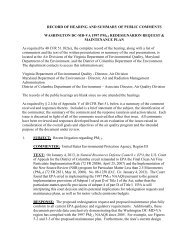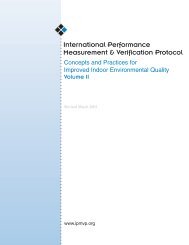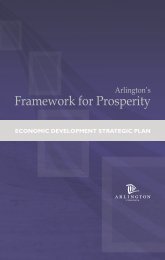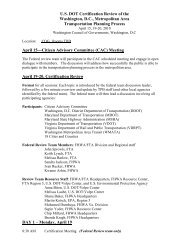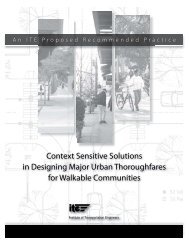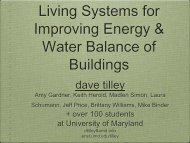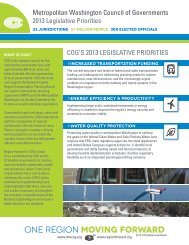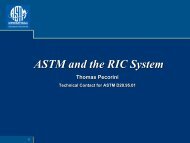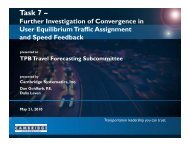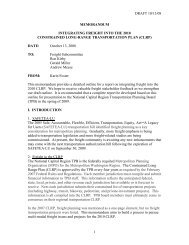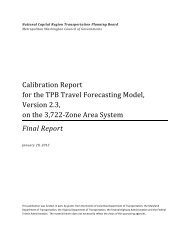PTI Local Government Energy Assurance Guidelines - Metropolitan ...
PTI Local Government Energy Assurance Guidelines - Metropolitan ...
PTI Local Government Energy Assurance Guidelines - Metropolitan ...
Create successful ePaper yourself
Turn your PDF publications into a flip-book with our unique Google optimized e-Paper software.
energy emergency coordinators may access valuable energy information and resources, including daily news<br />
summaries, emergency situation reports, lessons learned from other cities and States, links to outage and curtailment<br />
information, and the ability to email messages to up-to-date listings of colleagues in other jurisdictions.<br />
The EEAC system is a cooperative effort among NASEO, the National Association of Regulatory Utility<br />
Commissioners, the National Conference of State Legislatures, the National Governors Association-Center for Best<br />
Practices, Public Technology Institute, and OE’s Infrastructure Security and <strong>Energy</strong> Reliability Division (ISER).<br />
It establishes a secure cooperative communications environment for State and local government personnel with<br />
access to information on energy supply, demand, pricing, and infrastructure. Designated members have expertise<br />
in electricity, petroleum, and natural gas. The membership is made up of representatives from State energy offices,<br />
Public Utility Commissions, State legislators, emergency management agencies, homeland security offices, and<br />
governors’ offices.<br />
In the event of an energy supply disruption or emergency, OE relies upon the EEAC contacts to provide an up-todate<br />
assessment of energy markets in the affected States. During these emergency situations, as well as other nonemergency<br />
situations in which the list may be used, the EEAC serves as the link between the affected jurisdiction,<br />
industry, and OE.<br />
The types of events that warrant communication with the EEAC network include:<br />
■■<br />
■■<br />
■■<br />
■■<br />
Large-scale events, such as an attack on the power grid, international oil disruption, hurricane, major ice<br />
storm<br />
Emerging problems, such as the spring gasoline change in non-attainment air quality areas that cause a<br />
significant increase in the number of terminals without a supply; very cold weather with requests for fuel<br />
driver hour waivers; price spikes; and other indicators of stress on the supply/distribution system’s ability to<br />
supply fuel<br />
Routine summer and winter energy assessments<br />
Simulations and exercises<br />
The types of non-proprietary information that should be shared include:<br />
■■<br />
■■<br />
■■<br />
■■<br />
■■<br />
■■<br />
■■<br />
Information that quantifies the size, scope and potential duration of the problem<br />
Geographic area affected<br />
Effects upstream and downstream in the energy supply/distribution system<br />
Public statements by State officials<br />
Specific actions taken by State or local governments to mitigate impacts<br />
Requests from industry for assistance and response<br />
In-State media reports that accurately describe the problem<br />
<strong>Local</strong> <strong>Government</strong> <strong>Energy</strong> <strong>Assurance</strong> <strong>Guidelines</strong> – Version 2.0 | 89



